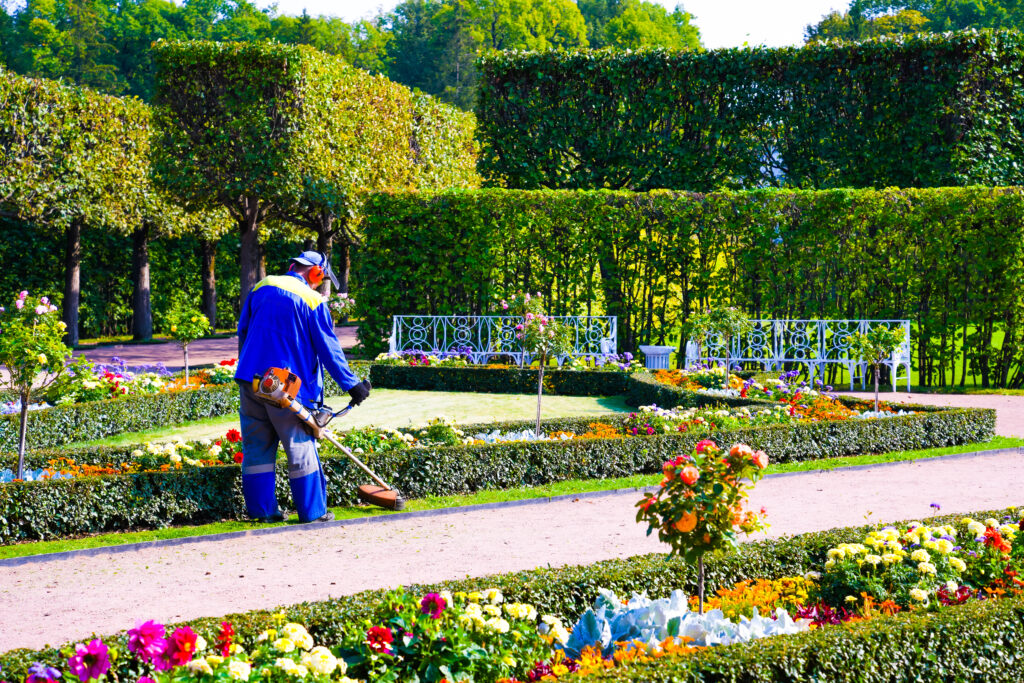Adam Brindle explains why the race to the bottom in grounds maintenance is bad for sites and bad for business.
Time for a dirty secret. Quite a few years ago, when I was coming into the grounds maintenance business, I was told: “You make your money doing the work you don’t do”. The message was that you price the work into your contract and then work your hardest to avoid delivering it. From an ethical perspective, this never sat well with me or for many of us in the profession who work hard every day to deliver on our promises. But that cynical view is sadly still out there – particularly when contractors are racing to the bottom on pricing grounds maintenance as a commodity rather than a skilled and valuable service.
This month we saw just this when pitching to a prospective client in the care sector. Until recently their grounds maintenance was being handled by two major contractors, but the experience had proved disappointing, with unfulfilled promises and even failures to turn up on site for weeks on end. As a result, they had decided to reboot and rewrite their tender to be more focused on quality and horticultural best practice. The client had realised that the commodity approach on pricing and services, which at best delivered a bare-bones “mow, blow and go” service, needed to be replaced by a more specialised approach that could combine a commercial offering with a more horticultural focus. This change in emphasis reflected a realisation that their sites were more than a problem to be held at bay, but rather, could become an asset to support their business. Within care homes, gardens could play an active role in supporting their service users, for example, by providing sensory spaces for Alzheimer’s sufferers.
There will of course be limits to how much can be done within a given budget and grounds maintenance has always been concerned with balancing aesthetic demands with cost control. Yet for many clients, the focus on quality and horticulture is proving a better way to reconcile these objectives. At several of the larger sites we manage, we have worked with clients to move away from excessive mowing and are now allowing grassy areas to go longer between mowing. This takes a more considered, proactive approach: not quite rewilding but finding a happy medium that cuts costs while allowing wildflowers to flourish. It also reduces the environmental impact and the emissions produced when mowing lawns to within an inch of their life.

In other instances, having skilled staff who can care for plants through best horticultural practice helps those plants stay looking at their best for longer periods. By contrast, the commodity approach of ‘box it all up, square it all off and get rid of the leaves’, can result in plants dying off and require costly replanting down the line. As an aside, housing developments can often start with poor landscape architecture, where gardens are strewn with plants that often outgrow their space and/or are hard to maintain. Taking a considered horticultural approach from the outset can help to deliver longevity.
For many clients, there is a growing realisation that letting the pendulum swing too far towards a cheap tender can result in poor overall return on investment – especially when it results in higher downstream costs to rectify poor practices. By contrast, working with a horticultural specialist and investing a little more upfront can produce better outcomes and greater long-term ROI. What does this mean in practice? It means that contractors engage with stakeholders throughout the client’s business to understand needs, auditing their portfolio to help them understand the status of their sites and then identify what work can be done to align to those needs. This process is key to defining ROI in a more meaningful way. Thinking again about our care home example shows how value can be defined. Say you’re considering a home for your elderly mother and turn up to see the gardens in a state of neglect. Would you trust a business to care for your mum if they can’t look after their grounds? Whether it’s retail or property management, this need to preserve kerb appeal can be seen across numerous businesses.
Of course, horticultural best practice must be reconciled with practical factors such as safety. Even if it’s the wrong time to cut back a hedge, if it’s growing across a path and causing a trip hazard it needs addressing. Likewise, piles of leaves on paths can cause trips and slips, and site visits by grounds teams need to allow for sufficient vigilance and care to ensure issues are caught early and proactively addressed. This is easier to achieve if grounds staff aren’t being incentivised to deliver the minimum. Conversely, things like this can be missed if contractors have no sense of partnership or accountability.
Ironically, in the digital age when smart devices are allowing for far more live reporting and supposedly better accountability, much of the old-school TLC that helps keep sites at their best is being left behind. I’d argue that clients can and should expect both – and indeed many organisations have already started to change the way they engage grounds maintenance contractors to focus on value rather than cost.
Adam Brindle is managing director of The Grounds Care Group




